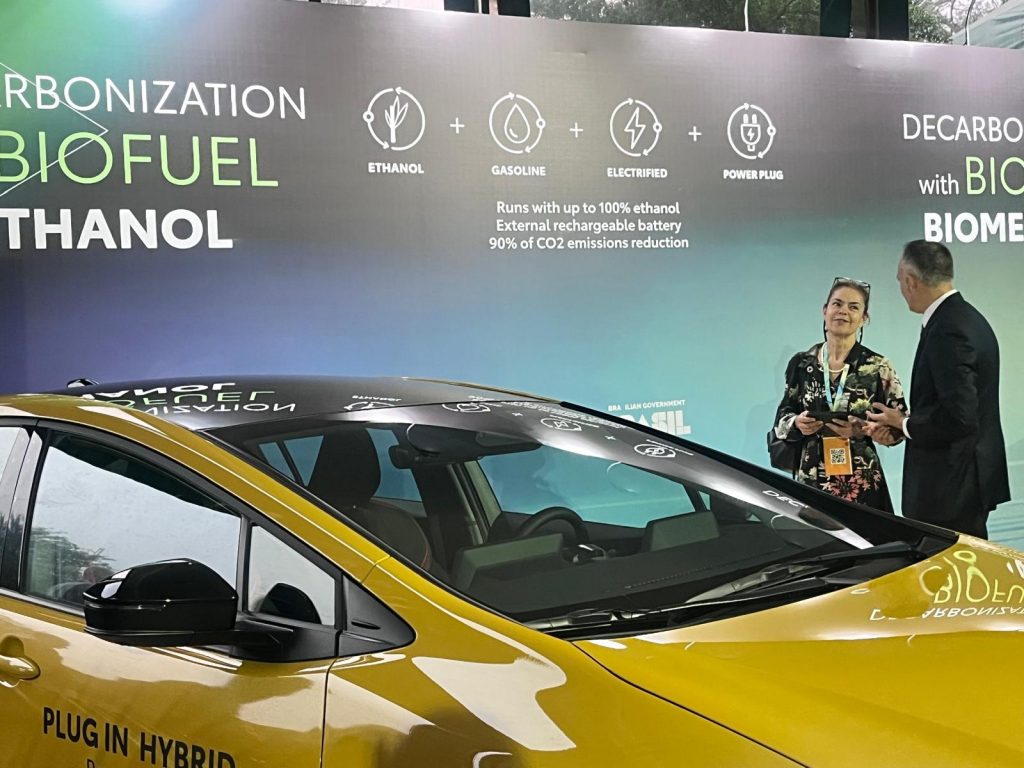Last week, U.S. Grains Council (USGC) Manager of Ethanol Policy and Sustainability Linda Schmid traveled to Foz do Iguaçu, Brazil to advance the benefits of ethanol in the transition to carbon neutrality at the 15th Clean Energy Ministerial Meeting (CEM15) and the Ninth Ministerial Meeting of Mission Innovation (MI-9).
The CEM15 and MI-9 Ministerial were held alongside the Fourth G20 Energy Transition Working Group Meeting (ETWG IV) and the G20 Energy Transition Ministerial Meeting (ETMM), which advocates for climate-conscious solutions in the transportation sector including innovations like sustainable aviation fuel (SAF) that will play a key role in reducing global carbon emissions.
“Biofuels are playing a key role in decarbonizing road vehicles, air travel through SAF and day-to-day living with initiatives like clean cooking and it’s up to all of us at the Council to continue to work collaboratively with our international partners and advance biofuel policies worldwide,” Schmid said.
“Brazil is hosting COP30 next year, the United Nation’s climate conference, so this was an important step to lay the groundwork for the high-level discussions that will take place there.”
International interest in SAF has skyrocketed over the past several years and numerous countries have announced targets for SAF blending rates, opening a new market opportunity for U.S. biofuel producers.
Schmid concluded her time at the events by attending the Sustainable Fuels, Chemicals and Materials Industry Forum, that provided an opportunity for stakeholders to level-set on current industry dynamics, build consensus around priorities to be addressed by intergovernmental commitments and identify expected key policy priorities through 2025.
“The Council strives to be an active participant in these discussions to have a direct understanding of how governments and the private sector are operating within the context of climate change and how that will impact our strategies in marketing U.S. ethanol to international customers,” Schmid said.
“Encouraging and tracking developments in global adoption of SAF and clean cooking with biofuels will ultimately benefit the U.S. industry by generating significant demand across multiple avenues.”
Learn more about the Council’s work in ethanol here.
About The U.S. Grains Council
The U.S. Grains Council develops export markets for U.S. barley, corn, sorghum and related products including distiller’s dried grains with solubles (DDGS) and ethanol. With full-time presence in 28 locations, the Council operates programs in more than 50 countries and the European Union. The Council believes exports are vital to global economic development and to U.S. agriculture’s profitability. Detailed information about the Council and its programs is online at www.grains.org.

